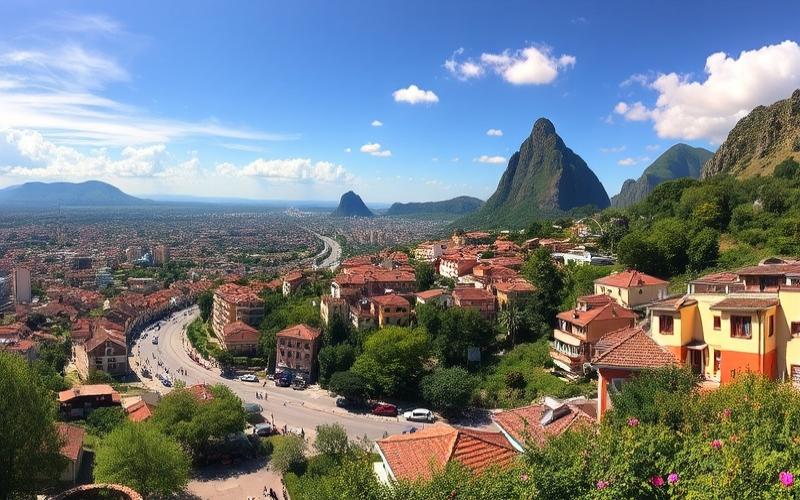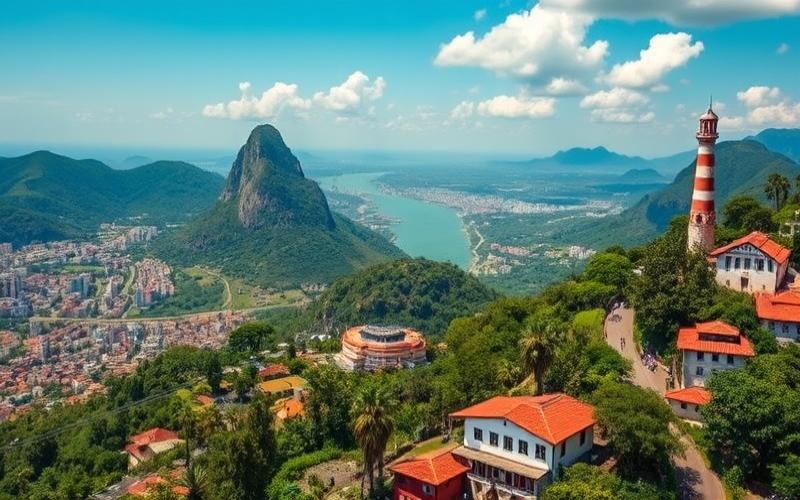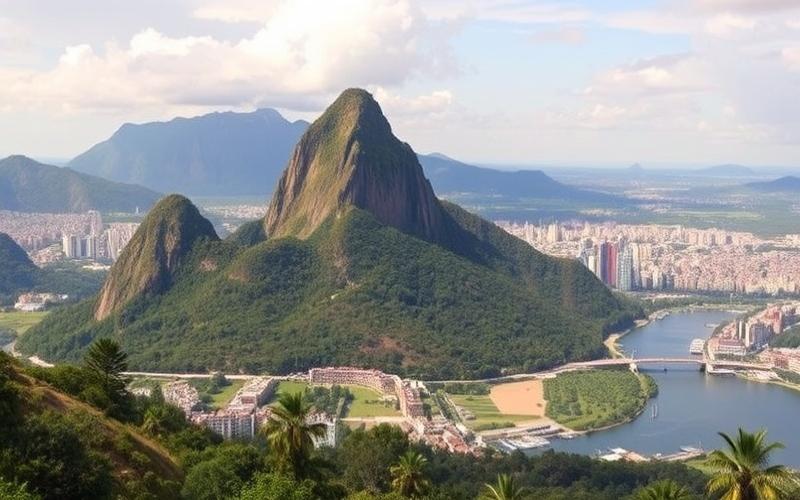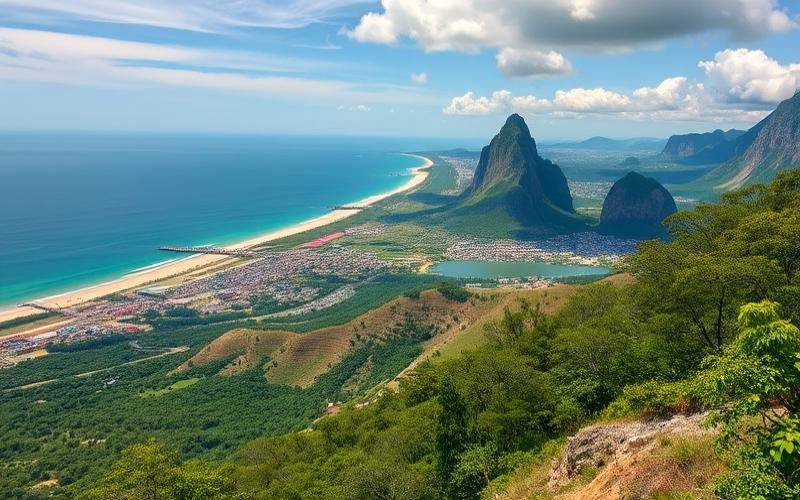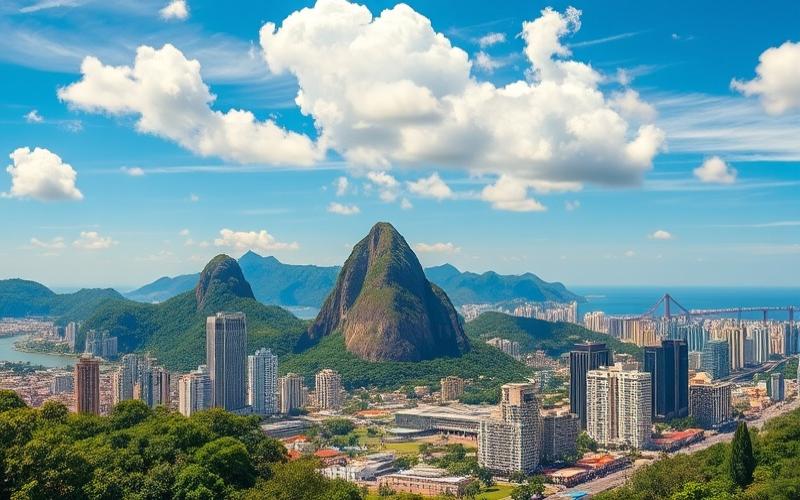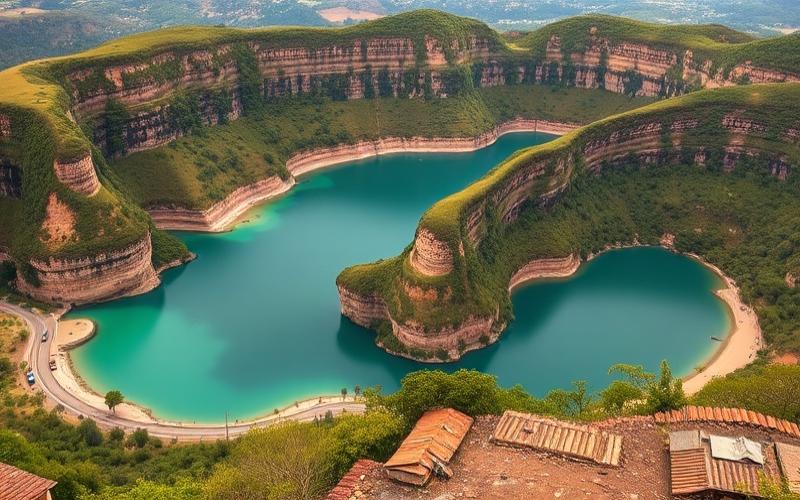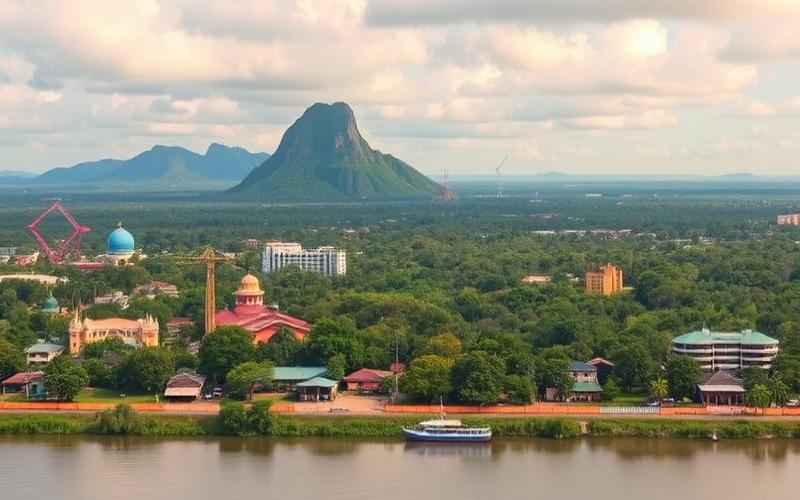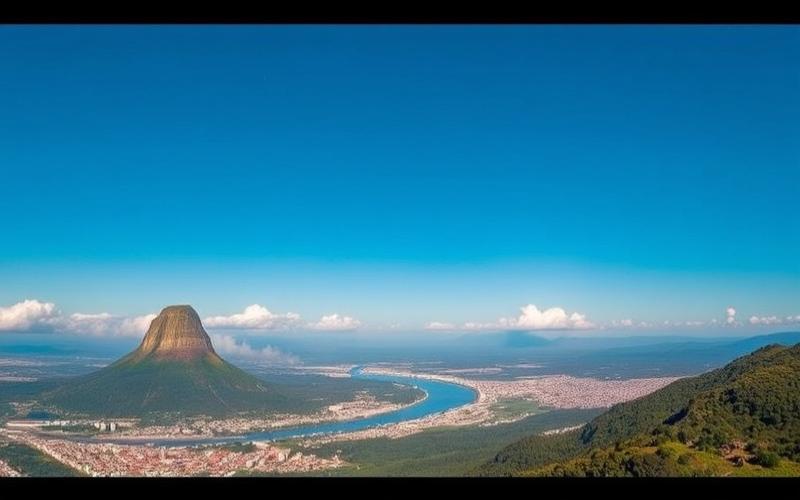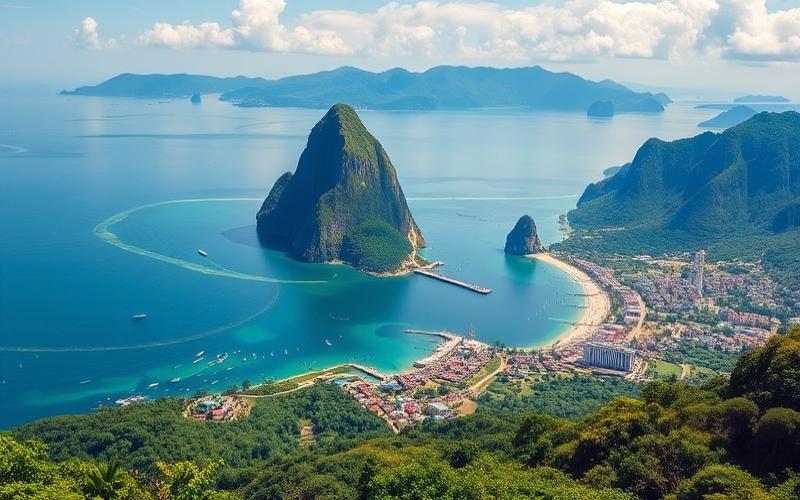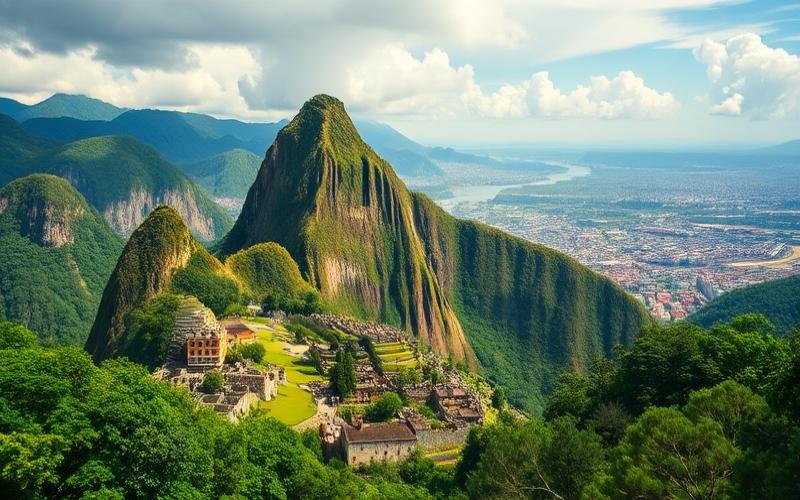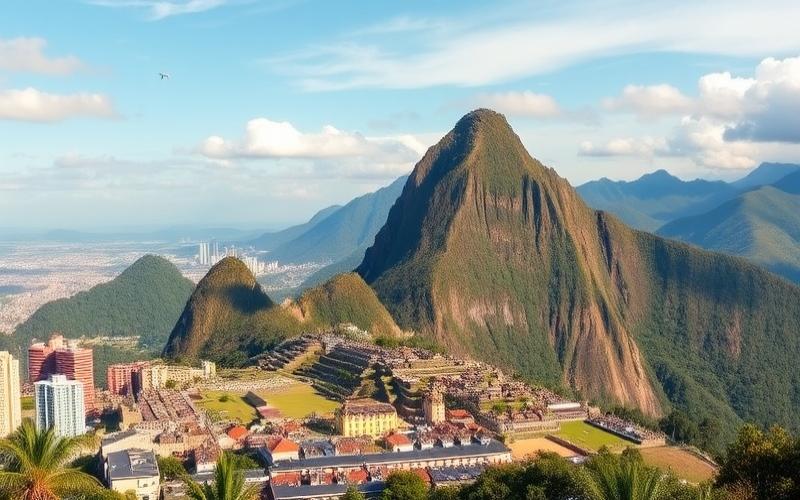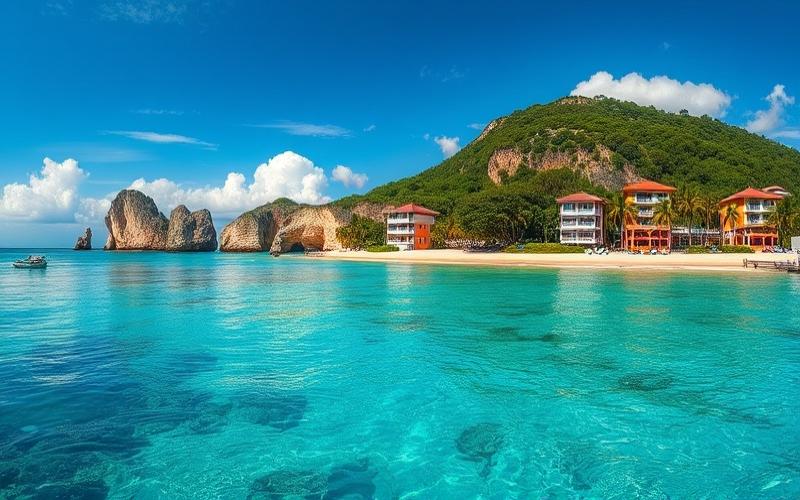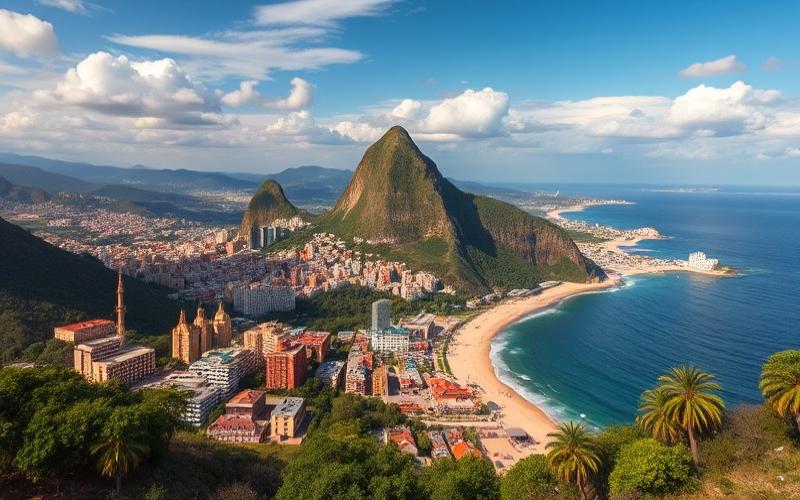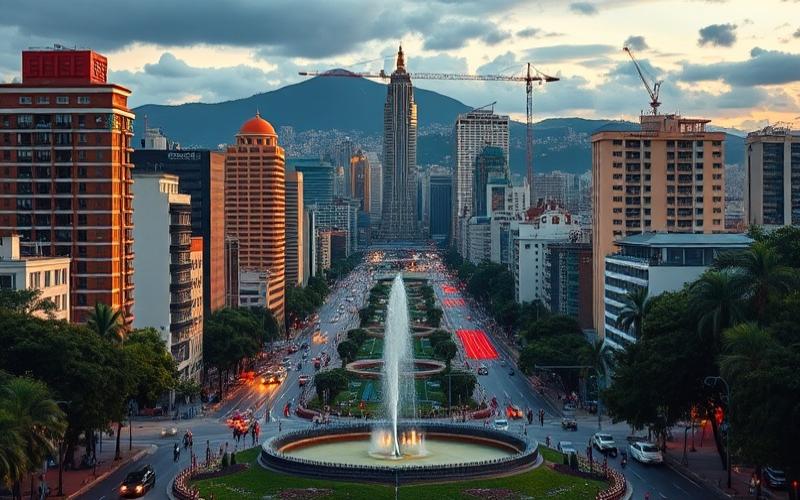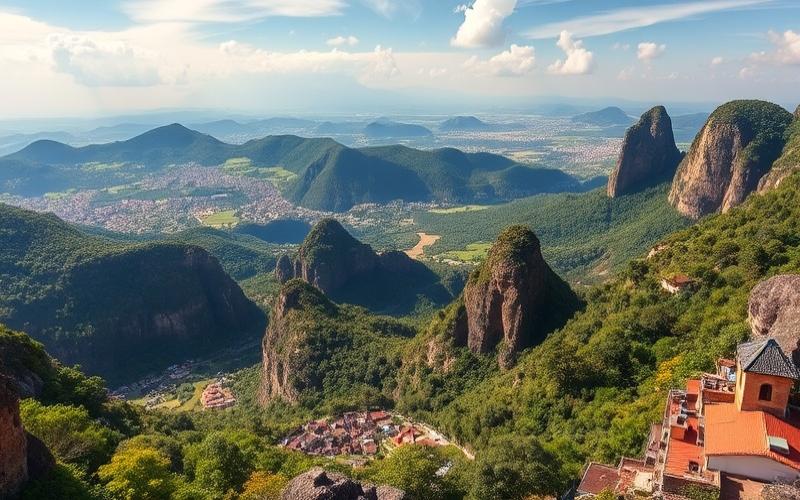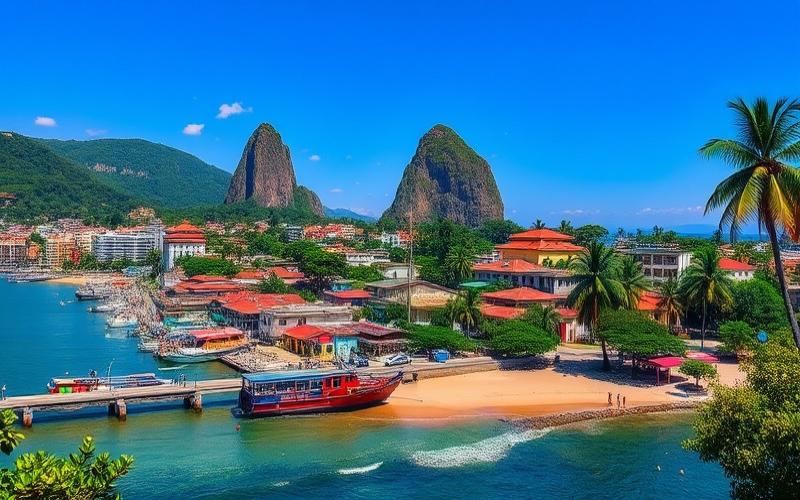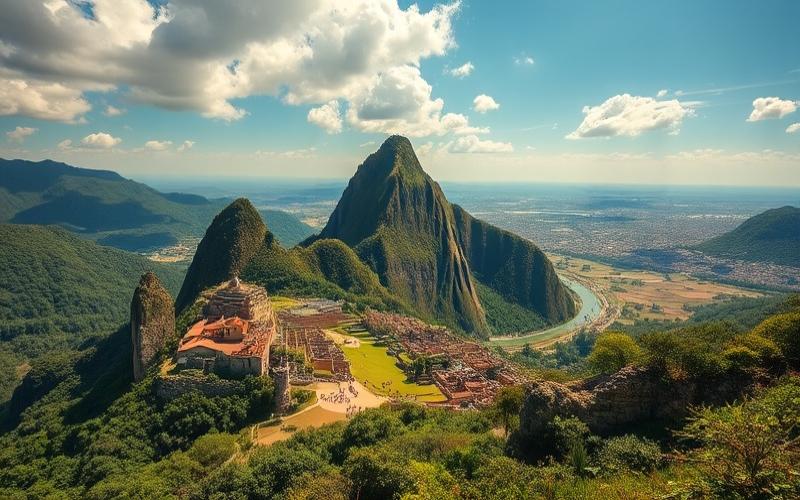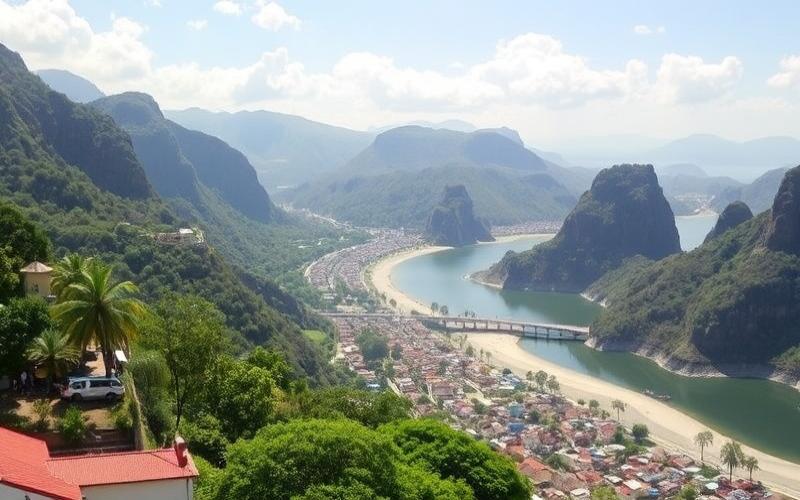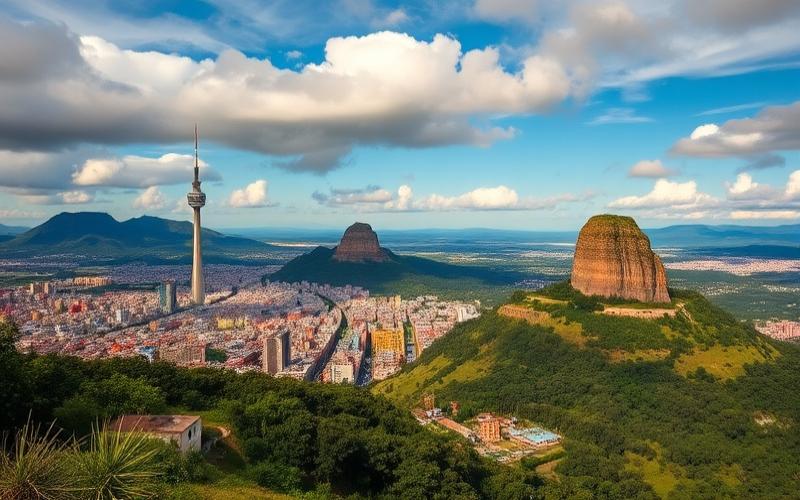
 Published on and written by Cyril Jarnias
Published on and written by Cyril Jarnias
Acquiring Agricultural Land in Brazil
Acquiring agricultural land in Brazil is an enticing investment due to its vast agricultural potential and diverse economic opportunities, but this process can prove complex because of a specific legal framework.
It is crucial to understand the local rules governing land ownership, the restrictions imposed on foreigners, and the necessary steps to secure a purchase in full legality.
This article will provide you with a detailed guide to navigate the Brazilian legal system and ensure your transaction is not only compliant with the laws but also fruitful in the long term.
Learn how to anticipate challenges, avoid common pitfalls, and leverage best practices to optimize your investment in this South American country with incomparable natural wealth.
Overview of the Legal Framework for Purchasing Agricultural Land in Brazil
Foreigners are subject to specific restrictions for purchasing agricultural land in Brazil, primarily established by Law No. 5,709/1971 and Law No. 8,629/1993, as well as the Constitution (Art. 190) and administrative interpretations reaffirmed since 2010. Limits exist regarding area, location (sensitive zones), and concentration per municipality and nationality, along with requirements for prior authorizations and specific registrations.
Primary Legal Sources and Scope
- Federal Constitution, Art. 190: empowers the law to limit the acquisition/leasing of rural properties by foreigners and to define cases subject to Congressional authorization.
- Law No. 5,709/1971: central framework limiting the purchase and leasing of rural land by foreign individuals, foreign legal entities, and Brazilian companies controlled by foreigners.
- Law No. 8,629/1993: provisions on agrarian reform and the definition of rural properties, complementing the applicable framework.
- 2010 Reinterpretation: reinstated the strict application of the limits from the 1970s law to Brazilian companies controlled by foreigners.
Size, Location, and Concentration Restrictions
- Area Limits: per foreign purchaser, measured according to INCRA parameters (MEI/Module), with legal ceilings per transaction and per total holding, also applying to Brazilian companies under foreign control.
- Municipal Ceiling: foreigners cannot hold more than 25% of the rural land area in a single municipality; within this quota, a single nationality is limited to 40%.
- Sensitive Zones: acquisitions in national security areas (borders, vicinities of military installations, etc.) subject to approval by the National Security Council and additional controls.
- Notarial Practice: frequent refusal to authorize direct purchase by individuals domiciled abroad without Brazilian residence/identity (RNE), implying practical eligibility constraints.
- 2010 Reaffirmation: historical ceiling of approximately 5,000 hectares for acquisitions by non-Brazilians, reinstated for entities controlled by foreigners.
Acquisition Process and Key Procedures
- Eligibility Verification: of the purchaser (foreign status, company control, nationality) and compliance with municipal quotas and area ceilings.
- Prior Authorizations: depending on size, location, and purchaser profile, obtaining approvals (e.g., INCRA) and, if applicable, security-related opinions/agreements.
- Deed and Registration: formalization via notarial deed and registration with the competent land registry, mentioning the legal restrictions applicable to foreigners.
- Tax Obligations: payment of transactional taxes (e.g., municipal ITBI depending on the structure) and CPF/CNPJ regularity, in addition to standard post-acquisition tax obligations.
- Corporate Traceability: for Brazilian companies under foreign control, documentation of control and compliance with required thresholds and authorizations.
Essential Due Diligence
- Legal History: chain of title, verification of potential nullities, encumbrances, disputes, real rights, usufructs, easements, or third-party occupations/possessions.
- Cadastral Situation and Georeferencing: consistency between legal description, de facto boundaries, and INCRA bases; conformity of measured areas to applicable ceilings.
- Compliance with Municipal Quotas: and ceilings per nationality and per purchaser, before any promise or fund deposit.
- Verification of Authorization Needs (INCRA, national security) based on location and size, to avoid transaction annulment.
Land Use and Environmental Compliance
- Respect for Agricultural Designation: and usage restrictions provided by agrarian regulations; non-compliance can lead to sanctions and deed annulment.
- Environmental Requirements: compliance with legal reserve and permanent preservation area obligations, environmental licensing if applicable, and enhanced controls for sensitive zones.
- Risks of Non-Compliance: nullity of acquisition, fines, and operational constraints, especially for projects requiring clearing or change of use.
Tips for Working with Local Professionals
- Engage Specialized Lawyers: in land law and foreign investments to structure the operation, qualify foreign control, and map required authorizations.
- Collaborate with a Local Notary: experienced in transactions involving foreigners and anticipate identity requirements (CPF, RNE) and translated/legalized documentation.
- Involve Surveyors and INCRA Consultants: to secure cadastre, georeferencing, and compliance of areas and land boundaries.
- Establish a Authorization Schedule: and suspensive conditions, with a complete environmental and land audit before signing and payment.
Rural acquisitions by foreigners in Brazil are governed by a restrictive regime based on Law No. 5,709/1971, supplemented by Law No. 8,629/1993 and Art. 190 of the Constitution, with municipal quotas (25% and 40% per nationality), sensitive zones subject to authorization, and a frequent need for INCRA approvals; non-compliance exposes the operation to nullity, hence the importance of land and environmental due diligence and support from local practitioners.
Good to Know:
In Brazil, the purchase of agricultural land by foreigners is regulated by specific laws that can impose restrictions on the size and location of acquired plots. Non-residents must navigate a complex legislative framework often subject to interpretation, particularly concerning border regions and large areas, for which government authorizations may be necessary. The processes involve rigorous administrative steps, such as property registration and payment of specific taxes. Due diligence is crucial to assess the legal history and encumbrances on the land, avoiding future disputes. Furthermore, strict compliance with environmental regulations is required for the use of agricultural land. Engaging lawyers specialized in Brazilian land law is recommended to facilitate these complex procedures and ensure legal requirements are met, while providing peace of mind regarding the purchase’s legitimacy.
Understanding Rural Zoning and Its Legal Implications
Rural zoning in Brazil is divided into several key categories and directly governs agricultural land transactions by determining what can be done on a plot, what must be preserved, and under what conditions non-agricultural uses are permitted.
Main Rural Zoning Categories and Their Scope
- Agro-Pastoral Zoning: areas designated for commercial crops and livestock (soybeans, corn, sugarcane, coffee, cattle), often within biomes like the Cerrado and Pampa, where agricultural expansion has been historically supported by public policies and territorial planning.
- Environmental Preservation Zoning: obligations to maintain private conservation areas such as the “Legal Reserve” and Permanent Preservation Areas (APP), which condition agricultural use and limit clearing.
- Sensitive Biome Zoning: Amazon, Mata Atlântica, Caatinga, Cerrado, Pampa, with differentiated protection levels and specific land conversion restrictions, particularly in the Amazon.
- Irrigation Perimeters and Agrarian Reform Zoning: spaces structured by public policies and territorial projects, subject to specific usage rules and collective land organization frameworks.
- Urban Expansion and Rural-Urban Transition Zoning: rural sectors subject to municipal urbanization, subdivision, and change of use rules, considering the highly predominant and expanding urbanization.
Zoning Influence on Land Use Rights
- Permitted Agricultural Activities: crops and livestock systems must be compatible with the zone’s designation and associated biome; productive orientation varies by territory (e.g., sugarcane and citrus in the Southeast, soybeans and cattle in the Cerrado), which conditions investments and land value.
- Environmental Restrictions: each property must maintain a minimum percentage of Legal Reserve and respect APPs (watercourses, slopes, springs), which reduces cultivable area and imposes restoration plans in case of deficit.
- Urbanization Regulations: municipalities delineate urban, expansion, or rural zones, and control the creation of neighborhoods, subdivisions, and changes of use, affecting the possibility of subdividing or converting agricultural land.
Legal Implications of Non-Compliance
- Administrative Sanctions and Repair Obligations: illegal clearing of Legal Reserve or APP leading to fines, embargoes of productive areas, and obligation for ecological restoration.
- Transaction Insecurity: environmental non-compliances can block financing, insurance, and registrations, and reduce land value during due diligence.
- Usage Conflicts and Municipal Litigation: use non-compliant with zoning or illegal urbanization expose to cancellation of local authorizations and disputes with the municipality.
Procedures for Variances or Zoning Changes
- Environmental Variances: requests for licenses and authorizations from environmental authorities for activities in sensitive zones, with technical studies and compensations; regularization of Legal Reserve via restoration plans.
- Municipal Use/Zoning Changes: local procedures (revision of master plan, creation/modification of neighborhoods, subdivision approval), with administrative processing and official publication.
- Specific Territorial Projects: integration into irrigation perimeters or agrarian reform via programmatic frameworks and collective agreements defining usage rules.
Applicable Laws and Governance Levels
- Federal: environmental framework imposing Legal Reserve and APP on all rural properties; special regimes by biome and differentiated agricultural policies by productive region.
- States and Municipalities: complementary land use norms, delineation of urban/rural zones and neighborhoods, and procedures for subdivision and urbanization.
- Territorial Policies: instruments of territorial development and collective management in irrigation perimeters and agrarian reform initiatives, governing land use and access to infrastructure.
Concrete Examples of Impact on Agricultural Land Purchase
- Cerrado (Central-West): acquisitions oriented towards soybeans/corn/livestock, but conditioned by the availability of areas outside Legal Reserve/APP and by environmental compliance required by funders.
- Amazon: transactions hindered when the high share of Legal Reserve and deforestation restrictions limit agricultural expansion, imposing compliance and restoration costs.
- Urban Expansion Zones: rural plots near cities subject to municipal rules for neighborhood creation and subdivision; absence of formal regularization can invalidate or delay projects and affect land appreciation.
- Irrigation Perimeters/Agrarian Reform: purchases or designations subject to the territorial project’s rules, influencing permitted crops, water access, and collective obligations.
Vigilance Points for Agricultural Land Transactions
- Verify the compliance of the Legal Reserve and APPs on the property’s titles and technical records.
- Confirm the municipal zoning and existence of official neighborhood/subdivision delineations and their legal status.
- Assess the suitability of the intended agricultural use with the biome and regional policies, as well as any conversion ceilings or specific restrictions.
- Anticipate the costs and timelines for licenses and environmental restoration plans in case of deficit or change of use.
- Examine inclusion in territorial projects (irrigation perimeters, agrarian reform) and their internal regulations.
| Zoning Category | Main Purpose | Effect on Transaction |
|---|---|---|
| Agro-Pastoral | Production of crops and livestock adapted to the biome | Framework of permitted activities and valuation according to regional potential |
| Preservation (Legal Reserve/APP) | Conservation and restoration | Reduction of exploitable area; compliance and restoration obligations |
| Sensitive Biomes (e.g., Amazon) | Conversion restrictions | Limitation of clearing; enhanced due diligence |
| Irrigation Perimeters/Agrarian Reform | Collective management and specific rules | Specific usage conditions and collective commitments |
| Urban Expansion | Rural-urban transition | Municipal procedures for change of use and subdivision |
Good to Know:
In Brazil, rural zoning is divided into several categories, such as Environmental Protection Areas (APA), priority agricultural zones, and agro-industrial development zones, each determining land use rights. Permitted agricultural activities are strictly tied to zoning, imposing, for example, environmental restrictions in APAs to preserve biodiversity. Federal laws, like the Forest Code, and local regulations govern these aspects, and any non-compliance can lead to heavy sanctions, including fines and cancellation of land rights. Procedures to obtain a variance or modify zoning generally involve complex negotiations with local authorities. For instance, recent cases where zoning was reassessed to favor agribusiness showed that a zoning change is possible but often lengthy and costly, requiring careful assessment of social and environmental impacts.
Building Permits and Other Necessary Authorizations
The main types of permits for intervening on agricultural land in Brazil depend on the location in a rural area or urban area. In urban areas, construction, expansion, or change of use work requires a construction permit (alvará de construção) and project approval by the municipality according to the Master Plan and local urban code; in rural areas, the logic is agro-environmental, with priority to registrations and authorizations from INCRA (rural cadastre, usage compliance) and environmental agencies, with constructions evaluated regarding agricultural vocation and rural use restrictions.
Key Differences Rural Area vs Urban Area
- Urban Area: municipal zoning rules, setbacks, building codes, infrastructure network, urban taxes; permit issued by the city hall after technical review.
- Rural Area: requirements for social function, productivity, respect for labor and environmental law; control by INCRA and environmental authorities for any removal of native vegetation, water intervention, and opening of new production areas.
Municipal and Federal Procedures (Typical Order and Key Points)
- Municipal:
- Request for preliminary zoning and alignment information from the city hall.
- Submission of architectural and technical project to obtain the construction permit (alvará de construção) (plans, ART/RRT, compliance with Master Plan).
- Usual timelines: a few weeks to several months depending on complexity and mandatory consultations; additional delays apply if a consultative committee or municipal environmental opinion is required.
- Federal/Agrarian-Land:
- Registration or update of the property in the rural cadastre (INCRA) and compliance with legal limitations for foreigners; INCRA is competent to analyze and grant authorizations related to the acquisition/use of agricultural land by foreigners.
- Respect for the social and environmental function of the property is a constitutional criterion, conditioning the legal security of investments.
- Environmental (often coordinated at state level but with federal bases):
- Definition of the biome status, Legal Reserve and APP (Permanent Preservation Areas).
- If applicable, obtaining environmental licenses (preliminary, installation, operation) before any productive installation with impact.
- Timelines: environmental and land procedures can take from a few months to over a year depending on the state, presence of native vegetation and waters, and need for studies.
Other Necessary Authorizations
- Deforestation and Native Vegetation: specific authorization required from the competent environmental authority before any clearing in rural areas, with respect for reserve and APP quotas.
- Water Resources: authorization for water use (captation, irrigation) and implementation of hydraulic works from the competent water authority; possible impact study if substantial modification of the hydrological regime.
- Landscape Modifications: any intervention affecting soils, slopes, watercourses, or natural habitat may require progressive environmental licensing (LP/LI/LO) and compensation measures, under control of environmental agencies.
- Change of Use/Designation: in urban areas, municipal procedure for change of use; in rural areas, control by INCRA and compliance with social function and environmental norms.
Specific Legal Restrictions on Agricultural Land Use
- Constitutional Requirement of Social Function: rural property must be productive, respect labor rights and the environment; otherwise, it may be subject to expropriation with compensation.
- Limitations for Foreigners: Law 5,709/71 and its implementing decree regulate the purchase/leasing of agricultural land by foreigners; INCRA controls application and grants authorizations, with area ceilings linked to cadastral measures (MEI), and increased constraints for legal entities controlled by foreigners.
- Usage Restrictions: obligations to preserve percentages of native coverage (Legal Reserve) and permanent preservation areas; limitations on conversion of sensitive environments and use of inputs according to environmental and health regulations.
- Risks of Speculation and Non-Productivity: large non-productive properties are targeted by agrarian policy and social movements, reinforcing attention on social and environmental compliance.
Practical Tips for Foreign Buyers
- Engage from the start a Brazilian lawyer specialized in land/rural law and an agronomist/forestry engineer to map constraints (INCRA, Legal Reserves, APPs, water, access).
- Verify the land and regulatory situation: title, INCRA cadastre, history of authorizations, compliance with social function and environmental obligations; anticipate the need for specific INCRA authorization for acquisition by a foreigner and area ceilings.
- Plan the schedule integrating timelines for environmental licenses and municipal opinions; avoid any clearing or earthworks before obtaining authorizations.
- Conduct preliminary studies: topography, geotechnics, water availability, vegetation inventory and environmental diagnosis to calibrate the permit scope.
- Establish dialogue with the city hall and environmental agencies to clarify local requirements; document all interactions and maintain a compliance record.
- Include suspensive clauses in the acquisition contract conditioning the sale on obtaining key authorizations (INCRA, environmental licenses, municipal alvará), to secure the investment.
| Theme | Urban Area (Main Points) | Rural Area (Main Points) |
|---|---|---|
| Building Permits | Construction permit (alvará de construção) issued by city hall; compliance with Master Plan and building code | Focused on agricultural use; INCRA cadastral compliance; prior environmental authorizations |
| Key Authorities | Municipality (urban planning, building code) | INCRA, environmental agencies; municipality for constructions and local services |
| Environment | Possible municipal opinion/license depending on impact | Deforestation, water, soil licenses; respect for Legal Reserve and APP |
| Timelines | Weeks to months depending on complexity and consultations | Months to >1 year depending on studies, biomes and project scope |
| Restrictions | Urban zoning, setbacks, building codes | Social function, productivity, preservation, limits for foreigners |
Foreigners are subject to legal limits for the acquisition and use of agricultural land, and INCRA is the central authority for the analysis and approval of these operations. Anticipate specific environmental authorizations for any deforestation, water captation, or significant modification of the natural environment.
Good to Know:
In Brazil, purchasing agricultural land requires various authorizations, including building permits that vary depending on whether the land is in a rural or urban area; requirements are generally stricter in urban areas. To obtain these permits, it is necessary to navigate through municipal and federal procedures, which can take several months. Furthermore, environmental authorizations are essential if major landscape modifications, such as deforestation or water resource management, are planned. There are also legal restrictions concerning the types of crops and exploitation permitted, often dictated by environmental or economic concerns. For foreign buyers, it is strongly advised to collaborate with local legal professionals to properly understand these complex regulations and ensure an acquisition compliant with Brazilian legislation.
Tips to Avoid Risks Related to Non-Buildable Land
To avoid risks related to non-buildable land in Brazil, start by verifying buildability via municipal zoning and easements: consult the Master Plan/Land Use and Occupation Law at the city hall (Prefeitura) and confirm restrictions with the local urban planning department, as buildability depends on defined zones and technical conditions for access and viability, even if these criteria are described here in a French context and must be transposed to the Brazilian municipal framework with caution.
Essential Administrative Steps
- Request a local urban certificate (equivalent: urban information) from the Prefeitura to know the zoning, occupancy index, maximum height, setbacks, and existence of approved subdivisions or public easements.
- Query the land registries (Cartório de Registro de Imóveis) for the chain of title, encumbrances, easements, unavailability, and exact parcel description (matrícula).
- Verify with Incra if the property is classified as rural/agricultural and if restrictions apply (especially if the purchaser is foreign), as Incra analyzes and authorizes operations on rural land and applies Law 5,709/71 and its decree.
- Consult environmental authorities (state and federal) to determine if environmental authorizations are required (preliminary, installation, operation licenses) based on the project type and zone.
Key Brazilian Laws on Zoning and Agricultural Land
- For rural and agricultural land, Law 5,709/71 sets restrictions for foreigners (individuals and legal entities) for the purchase or leasing of rural land, with control by Incra and, beyond certain area thresholds, authorization from the National Congress; any unauthorized operation is null and voids the liability of the parties involved.
- Indigenous lands are legally inalienable and unavailable: they cannot be negotiated nor used for economic exploitation purposes, which excludes purchase/occupation by private individuals and requires identifying any overlap with demarcated or under demarcation indigenous lands.
- Permanent Preservation Areas (APP) and other environmentally protected zones impose strong usage and construction restrictions, requiring specific authorizations and potentially rendering land de facto non-buildable.
Agencies and Authorities to Consult
- Prefeitura (Urban Planning Secretariat): municipal zoning, construction parameters, alignments, subdivision approval.
- Cartório de Registro de Imóveis: titles, easements, unavailability, cadastral accuracy.
- Incra: rural classification, limits and authorizations for agricultural land, application of restrictions for foreigners.
- Environmental agencies (state/federal) for APPs, reserves, licenses and authorizations.
- Local heritage foundation/institute and IPHAN if there is a heritage or archaeological interest, in addition to the city hall.
- Competent agencies for indigenous lands to verify any overlap and the impossibility of acquiring or exploiting these zones.
Impact of Environmental and Heritage Regulations
- APPs, Legal Reserves, conservation units, and riparian zones can prohibit or strongly limit construction, require setbacks, compensations, or impact studies; lack of authorization can lead to work embargo and sanctions.
- The presence of indigenous lands or heritage zones can make purchase, construction, or exploitation impossible, regardless of municipal zoning, as these protections take precedence and are non-negotiable.
Importance of a Lawyer Specialized in Brazilian Real Estate Law
The combined interpretation of federal law (e.g., Law 5,709/71), municipal urban norms, and environmental rules requires a local experienced lawyer to audit risks, structure the transaction (especially for foreigners) and obtain necessary authorizations; they can also secure contracts, suspensive conditions and guarantees.
Due Diligence Recommendations
- Chain of Title and Compliance: examine the matrícula, prior deeds, easements, disputes, unavailability, and exact georeferenced location (especially in rural areas).
- Regulatory Verification: cross-reference municipal zoning parameters with environmental layers (APPs, conservation units) and heritage aspects, and confirm absence of overlap with indigenous lands.
- Compliance with Law 5,709/71: if the purchaser is foreign, measure the area, rural/urban nature and obtain Incra authorizations and, if applicable, from the National Congress before any signing.
- Environmental Licenses: identify if the project requires successive licenses and plan technical studies (EIA/RIMA, hydrological/soil reports) before acquisition.
- Technical Site Analysis: access, viability, soil stability, flood/erosion risks; even if the cited example comes from a French framework, these technical criteria remain determining and must be validated locally with the city hall and utility companies.
Consultation of Planning Maps and Documents
- Use municipal urban planning maps (Master Plan, macro-zoning, land use and occupation maps) to locate non-buildable zones, ecological corridors, mandatory setbacks and permitted densities.
- Cross-reference with official environmental maps indicating APPs, conservation units and other protected areas to avoid restrictive overlaps.
- Verify, via public sources, the existence of demarcated/projected indigenous lands in the area, any overlap rendering the project legally unfeasible.
Practical Tips to Limit Risk
- Integrate suspensive conditions related to Incra authorizations, environmental licenses and zoning confirmation into the purchase agreement.
- Obtain written urban information from the city hall and environmental agencies; avoid relying solely on oral information.
- Hire a surveyor and lawyer for boundary marking, georeferencing, boundary verification, title analysis and drafting protective clauses.
- Plan a realistic schedule including authorization and license timelines, with due diligence milestones before any firm commitment.
| Step | Objective | Main Authority |
|---|---|---|
| 1 | Zoning and Parameter Consultation | Identify buildability and local limits |
| 2 | Land and Title Analysis | Secure ownership and detect encumbrances |
| 3 | Rural/Agricultural Verification and Foreigner Status | Compliance with Law 5,709/71 and Authorizations |
| 4 | Environmental and Heritage Screening | APPs, conservation units, heritage, indigenous lands |
| 5 | Licenses and Authorizations | Preliminary/installation/operation licenses |
| 6 | Contractual Clauses and Closing | Suspensive conditions, guarantees, compliance |
Good to Know:
To avoid risks related to non-buildable land in Brazil, it is crucial to inquire about the laws governing zoning and agricultural land, notably by consulting local municipal authorities for accurate information on buildability. It is recommended to engage a lawyer specialized in real estate law to interpret the complex legislation and assess the potential impact of environmental and heritage regulations, which can include protected areas or legal restrictions. Conducting due diligence studies is essential to verify property titles and identify potential disputes or usage conflicts. Consulting urban planning maps can also help detect legal limitations on land development. For instance, a plot in a protected area might be unsuitable for agricultural or construction projects.
Disclaimer: The information provided on this website is for informational purposes only and does not constitute financial, legal, or professional advice. We encourage you to consult qualified experts before making any investment, real estate, or expatriation decisions. Although we strive to maintain up-to-date and accurate information, we do not guarantee the completeness, accuracy, or timeliness of the proposed content. As investment and expatriation involve risks, we disclaim any liability for potential losses or damages arising from the use of this site. Your use of this site confirms your acceptance of these terms and your understanding of the associated risks.


